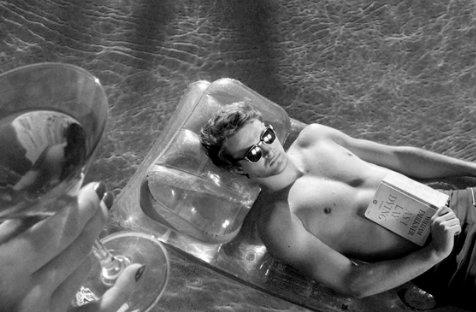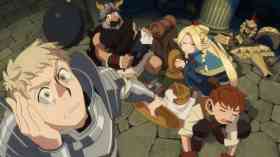The culture of celebrity cultivated by Hollywood has an unfortunate by-product: elevating the ‘live fast, die young, and leave a good looking corpse’ mentality to motivational and mythological status. Youthful actors indulge in a sea of parties and red carpets, and those who fall victim to tragic, untimely ends are as celebrated as they are mourned.
In the six decades since his death, James Dean has remained the figurehead for that frenetic set of fresh-faced performers whose careers came to fatal conclusions.
When Dean met his end on a Californian highway at the tender age of 24, he had only three feature films on his résumé. His professional stature would soar posthumously, as East of Eden, Rebel Without a Cause and Giant garnered critical and audience favour; so too would speculation about his personal dealings. On- and off-screen stories combined to create an enduring fable, with few definite facts known. Joshua Tree, 1951: A Portrait of James Dean provides a vision of the actor’s life and legacy, focusing on the formation of one version of the Dean legend.
Although fashioned as a re-creation, Matthew Mishory’s film is more fittingly comprised of a series of re-imaginings of Dean’s early life, as framed by a visit to the locale of the title in the corresponding year. Before fame and fortune came calling through stage and screen stardom, young Jimmy (James Preston, TV’s The Gates) learned his craft alongside his companion, confidant and roommate (Dan Glenn, Finding Hope Now). Failed actress Violet (Dalilah Rain, Movers) was appointed their chaperone, yet was herself fascinated by and flirtatious with the brooding performer. Their relationships were fluid, as was Dean’s burgeoning identity.
A poetic homage as handsome as the figure at its fore, the primarily black-and-white feature is never less than striking in its sublime imagery, flitting between Michael Marius Pessah’s (Love Addict) stunningly-shot vignettes of Dean’s formative movements: at parties and classes, making friends and lovers, and constructing the multi-faceted components of his publicly-accepted persona.
A consequence of the preference for artistry over action is that the film evokes an atmosphere and provides an experience more than it tells a conventional tale, existing as a creative endeavour instead of a traditional cinematic offering. Thankfully, writer/director Mishory (Delphinium: A Childhood Portrait of Derek Jarman) is well-equipped to entertain the senses with aesthetics that recall Hollywood’s classic period; similarly, he overcomes inherent pretentiousness to elicit emotional intensity.
The ambitious and ambiguous picture of Dean that results may not be the truth, nor does it perfect his inimitable screen presence, but it does further the cult surrounding his ascension to Hollywood royalty. A dream-like representation of the ultimate teen idol lost too soon, and a sly commentary on the cause of and cost of his status, Joshua Tree, 1951: A Portrait of James Dean enhances his enigma.
Rating: 3 stars out of 5
Joshua Tree, 1951: A Portrait of James Dean
Director: Matthew Mishory
USA, 2012, 93 min
Brisbane Queer Film Festival
www.bqff.com.au
5 – 14 April
Actors:
Director:
Format:
Country:
Release:





